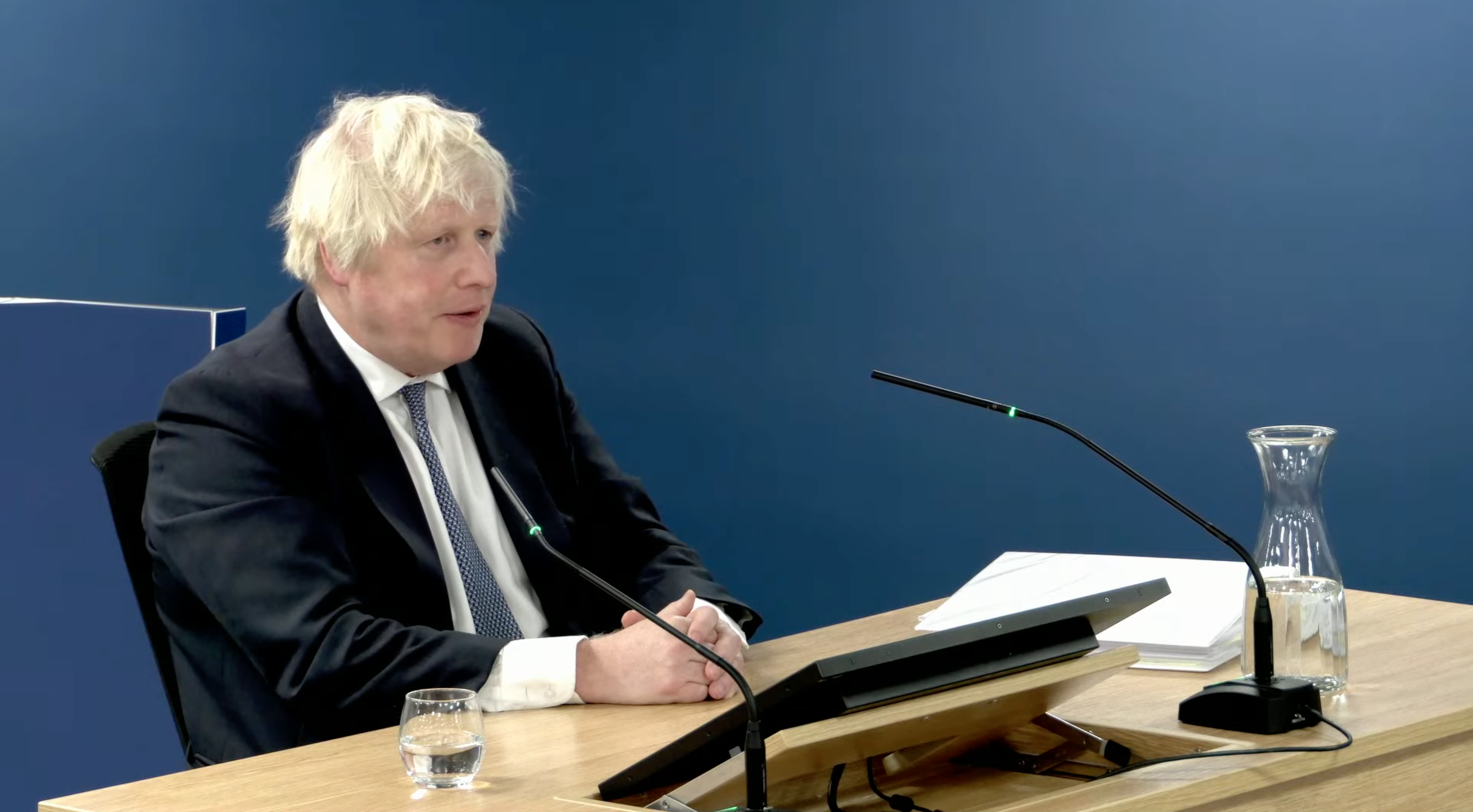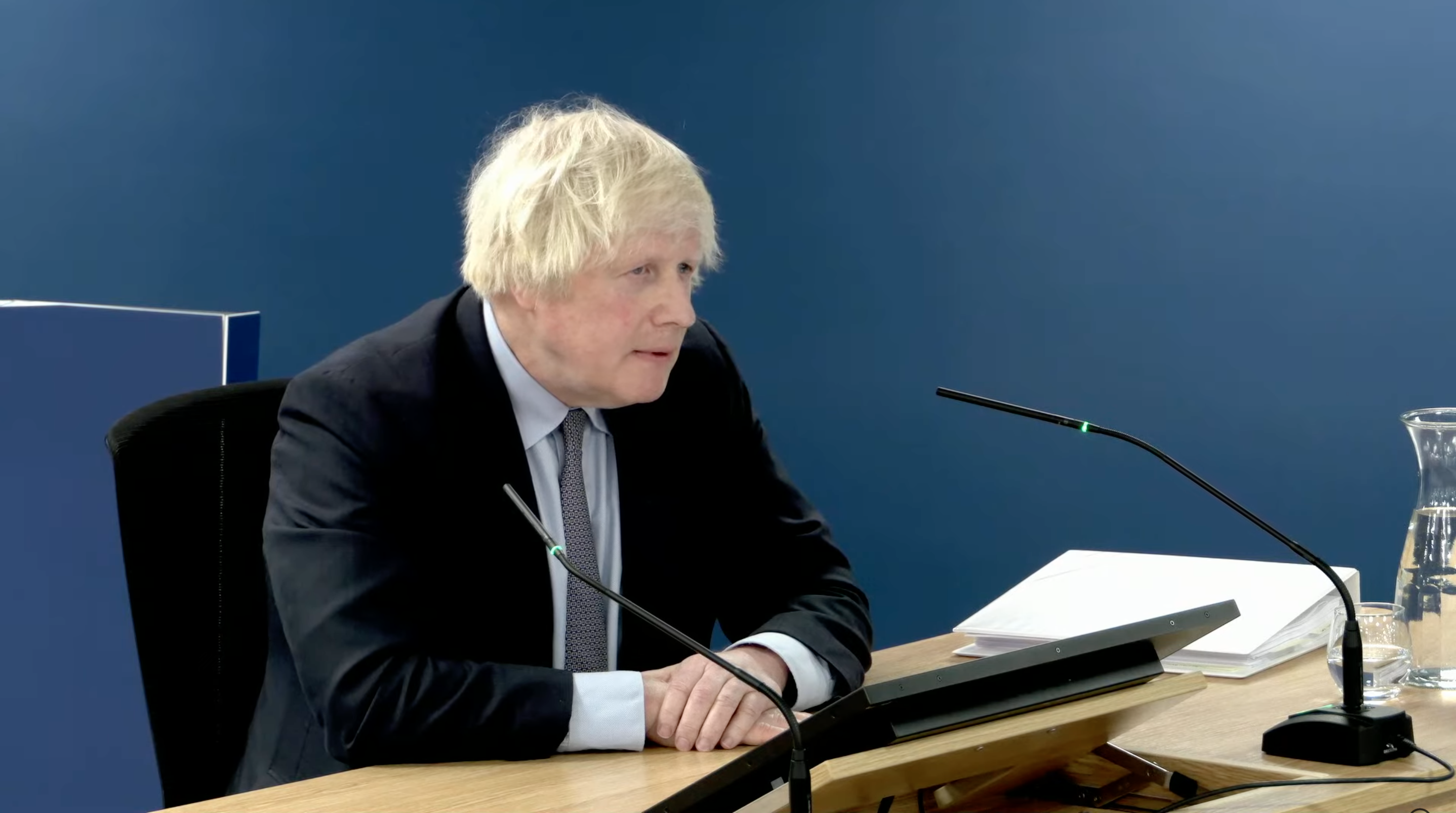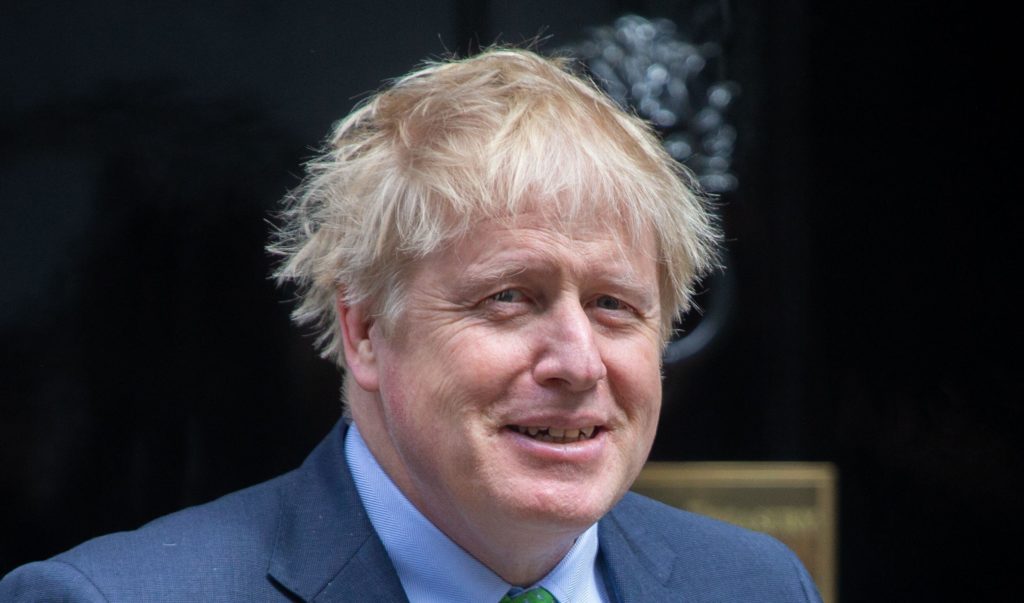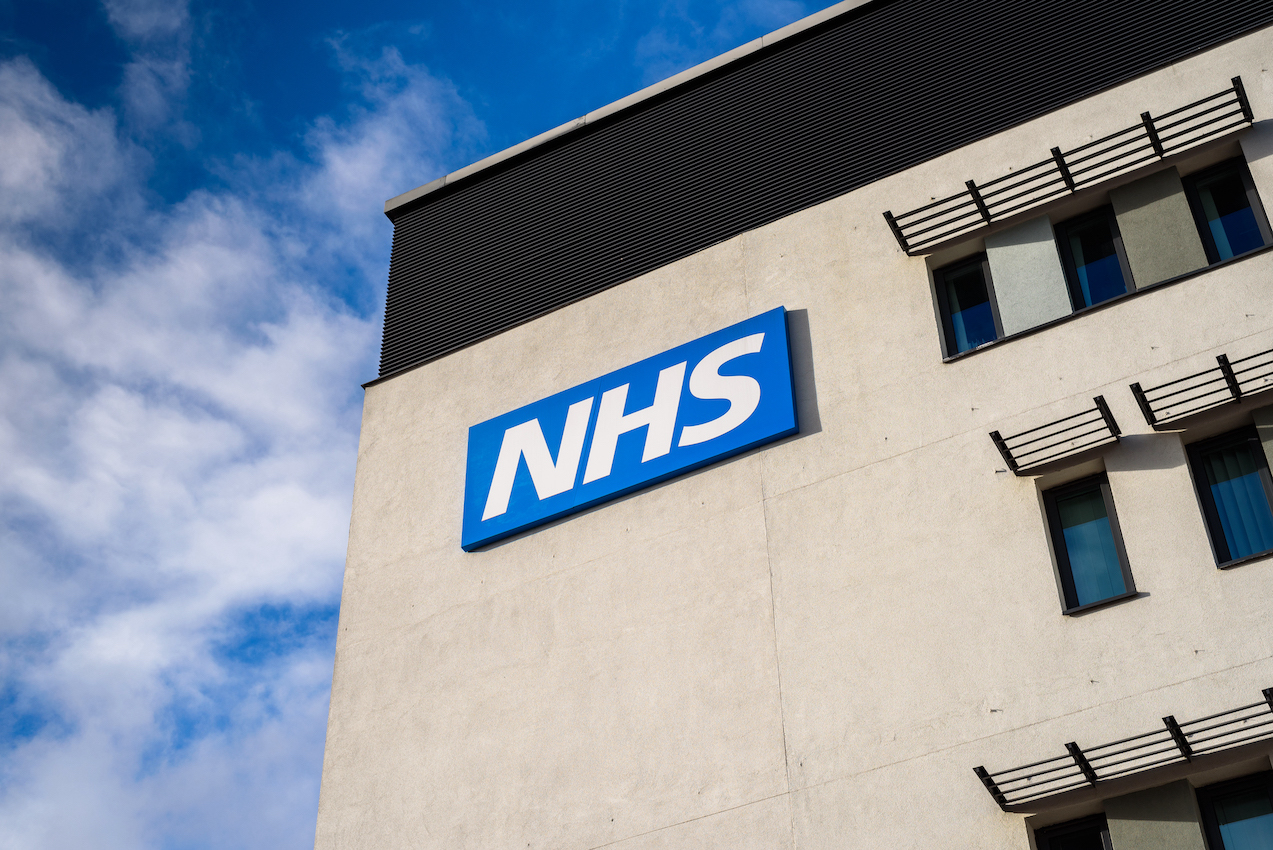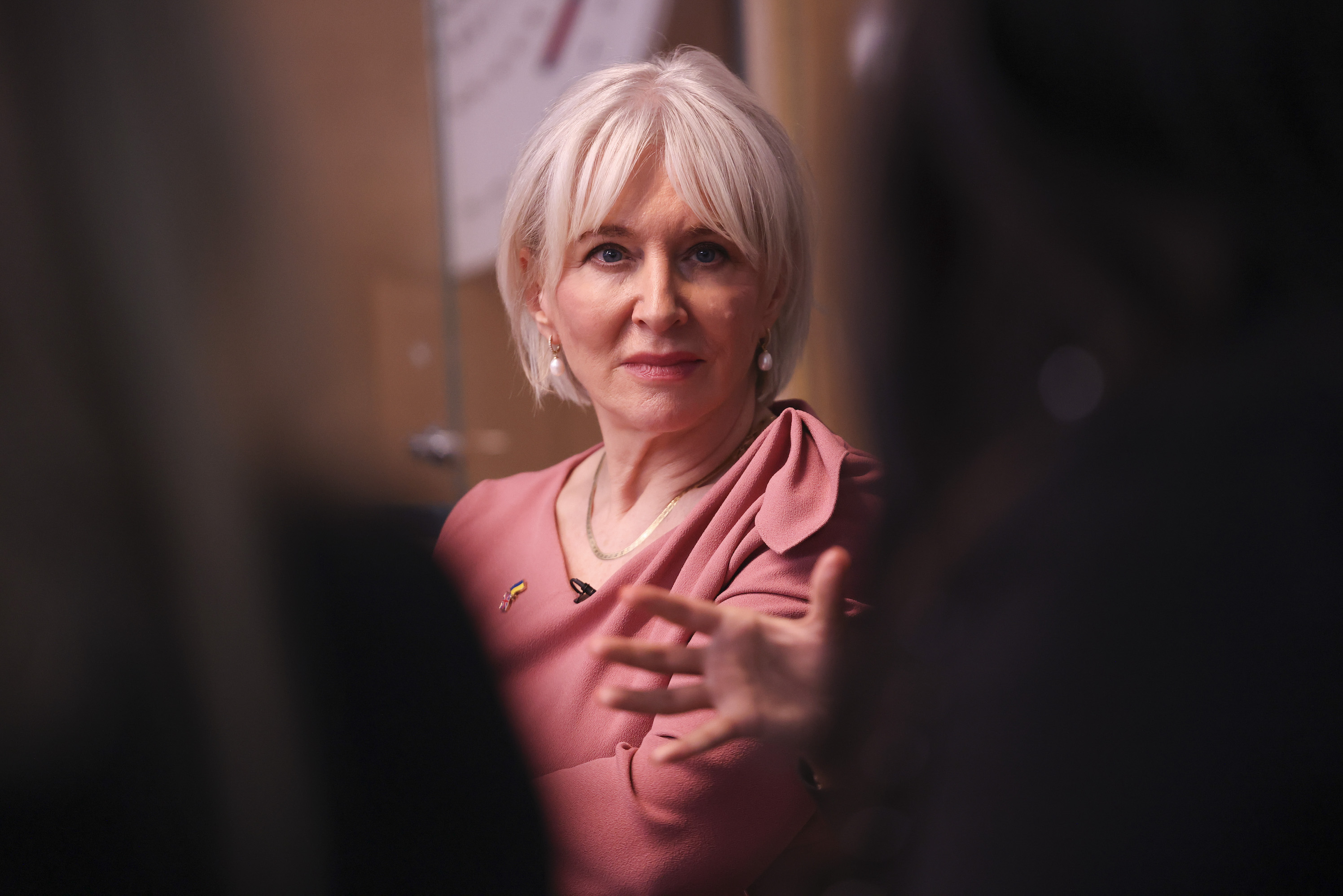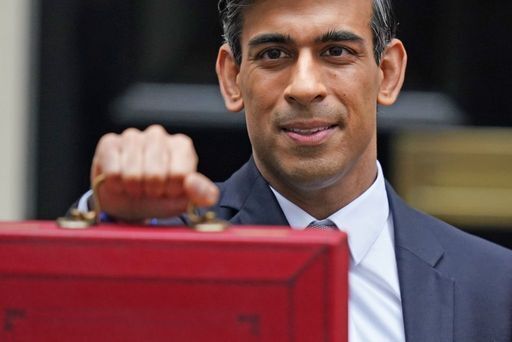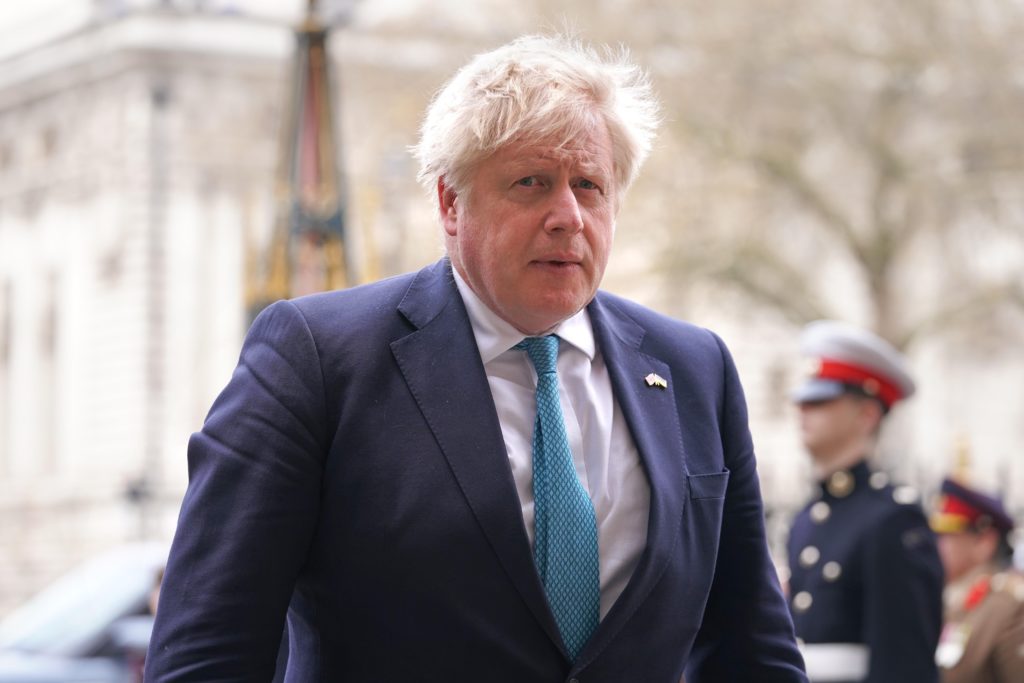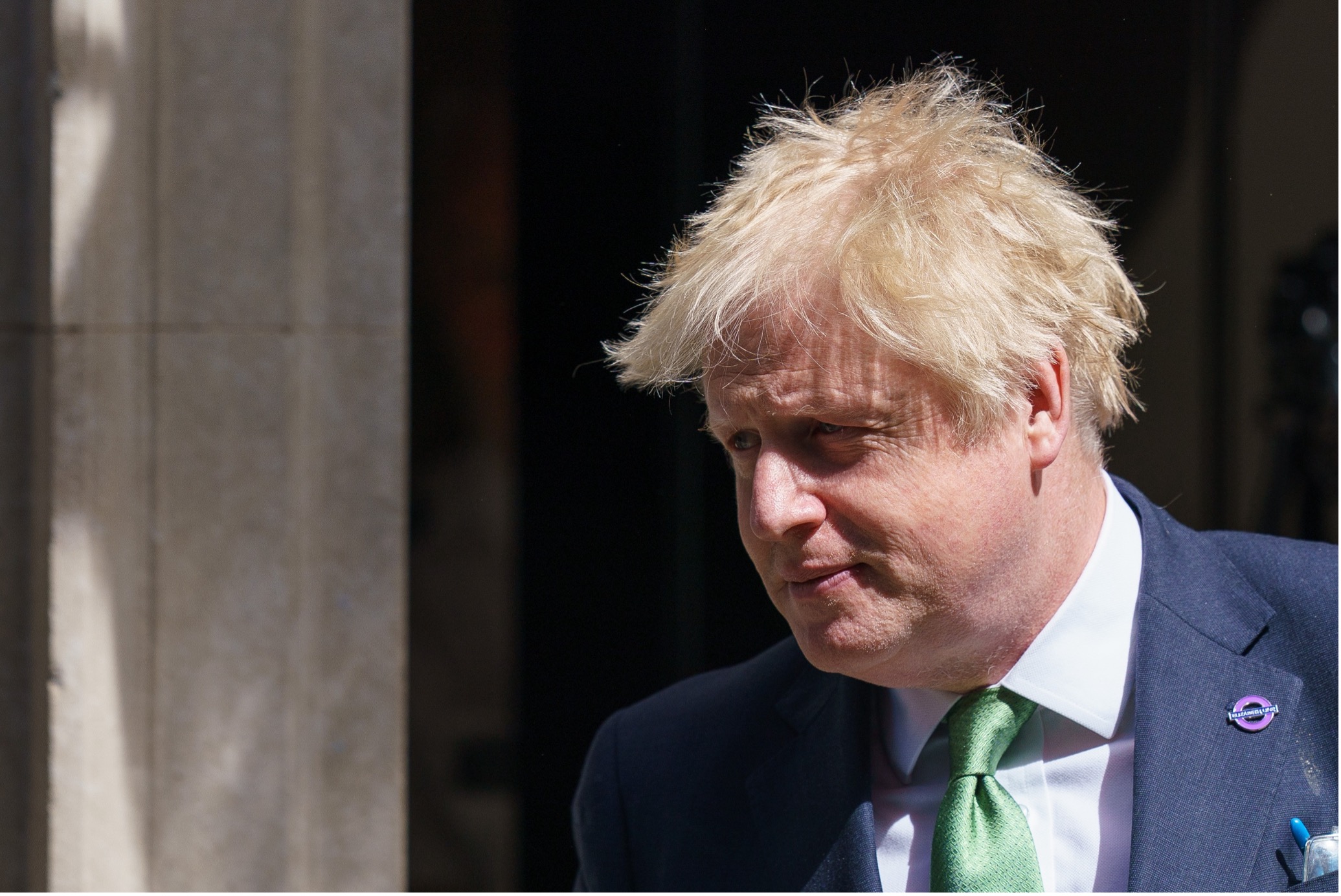Overview
Between the summer of 2019 and September 2022, Boris Johnson served as Prime Minister of the United Kingdom of Great Britain and Northern Ireland.
Previously Foreign Secretary (2016-2018), and London Mayor (2008-2016), Johnson was a prominent figure in 2016 EU Referendum campaign, and a leading supporter of ‘Leave’.
Boris Johnson served as the Conservative MP for Uxbridge between 2015 and 2023. He previously represented Henley in Parliament between 2001 and 2008.
Prime Minister
Following Theresa May’s resignation as Prime Minister and leader of the Conservative party in June 2019, Boris Johnson quickly – and expectedly – declared his candidacy.
The frontrunner from the start, Johnson secured his victory over his closest challenger, Jeremy Hunt, with 66% of the Conservative party vote.
In his victory speech, Johnson pledged to ‘deliver Brexit, unite the country, and defeat Jeremy Corbyn’. Johnson was invited by the Queen to form a government on July 24 2019.
In forming his government, Johnson dismissed 11 senior ministers and accepted the resignation of six others. Johnson ally, Nigel Evans MP, described this ‘purge’ as ‘not so much a reshuffle as a summer’s day massacre’.
In September, Johnson controversially opted to prorogue parliament to halt – according to his critics – MPs holding a no confidence vote in him and legislating against a no-deal Brexit . The prorogation was subsequently ruled unlawful by the Supreme Court.
Johnson’s first 6 months as PM were dominated by arguments over Brexit. He ultimately called a General Election in order to increase his majority and ‘get Brexit done’.
In the 2019 election, Johnson led the Conservative Party to its biggest parliamentary victory since 1987, winning 43.6% of the vote – the largest share of any party since 1979.
With a solid majority in place, Johnson guided his already-negotiated ‘Brexit deal’ across the finish line. Britain formally left the European Union on 31 January 2020.
From February 2020, Johnson led the UK through the COVID-19 pandemic. Johnson took the UK into three national lockdowns and rolled out a mass vaccination campaign. He also had a rather spectacular falling out with his one time advisor, Dominic Cummings.
In late 2021 and early 2022, Johnson was besieged with a number of allegations surrounding parties held in Downing Street during the covid 19 pandemic. Johnson along with his wife, Carrie, both received a police fixed penalty notice in relation to one gathering in the Cabinet Office.
Following falling opinion poll ratings and questions of whether Johnson had misled parliament over partygate, he faced a vote of ‘No Confidence’ from Conservative MPs in June 2022. Although Johnson won the vote, he was quickly involved in a further controversy surrounding his appiointment of the Conservative MP Chris Pincher to the government whips office.
In July 2022, Johnson faced an unprecedented wave of ministerial resignations over a 48 hour period, following the initial resignation of health secretary Sajid Javid and Chancellor Rishi Sunak.
Stuggling to form a government, Johnson agreed to step down in July 2022, staying on as a caretaker prime minister till Liz Truss won the Conservative leadership contest in September 2022.
Some 9 months later in June 2023, Boris Johnson resigned as an MP, doing so just before the Commons Privileges Committee published a report into claims that he has misled parliament.
Early political career
Johnson was first elected to parliament as the Conservative MP for Henley-on-Thames at the 2001 General Election.
In 2004, Conservative leader Michael Howard appointed Johnson as shadow Arts Minister. But Howard would dismiss Johnson only 7 months later, following the surfacing of rumours of an affair between Johnson and a journalist.
Re-elected at the 2005 General Election, Johnson supported David Cameron in the Conservative leadership contest of that year. Cameron subsequently appointed Johnson as the shadow Higher Education Minister.
In 2007, Johnson announced his candidacy for Mayor of London, challenging Labour incumbent Ken Livingstone. Following a tightly contested campaign, Johnson won a narrow victory – seen by many as a repudiation of the national Labour government led by Gordon Brown at that time. In 2012 Johnson was reelected mayor, beating Livingstone again.
In 2015, while still Mayor of London, Johnson returned to parliament as the MP for Uxbridge and South Ruislip. While holding these two offices, Johnson became the leading spokesman for the successful ‘Leave’ campaign at the 2016 EU referendum.
Following David Cameron’s resignation on the day after the referendum results were announced, Johnson vied for the Conservative leadership for the first time. However, on the morning he was set to officially announce his candidacy, Johnson’s key ally and prospective campaign chairman, Michael Gove, deserted him to run his own campaign. Johnson subsequently opted not to stand.
In Theresa May’s government, Johnson was awarded the role of Foreign Secretary where he became a persistent advocate for a ‘hard Brexit’. In 2018, he resigned in protest at May’s ‘Chequers Agreement’ – her plan for Brexit.
After a year of failing to persuade Conservative backbenchers to adopt her ‘deal’, Theresa May herself resigned. Johnson was then one of 10 candidates who were put to the Conservative parliamentary party in a series of votes. Johnson and Hunt stood as the final candidates in a vote among the party membership. Johnson came out victorious.
Before politics
Johnson was born in America. As a child, he lived in New York City, London and Brussels before attending Eton College. He went on to study classics at Balliol College, Oxford, and became President of the Oxford Union.
After a brief stint as a management consultant, Johnson focused on a career in journalism. He began at The Times in 1987, but was later fired for inventing a quotation. He then went on to work for the Daily Telegraph (1989-99) and in 1999 he was named the editor of The Spectator – he held this role until 2005.
Personal life
Well, it’s a little complicated.
Boris Johnson has been married three times, having married Carrie Symonds (now Carrie Johnson) in May 2021.
Symonds was previously the political press officer for Johnson’s London mayoral campaign, ‘BackBoris2012’. Boris and Carrie became the first unmarried couple to move into Number 10.
During his time in Downing Street, Johnson became a father on two occassions. A son, Wilfred Johnson, was born in April 2020, and a daughter, Romy Johnson was born in December 2021.
Johnson has a number of children from previous relationships.
Johnson has been close friends with Charles Spencer (the younger brother of Princess Diana) since his time at school.
As prime minister, Johnson was hospitalised with Covid, including a couple of nights in intensive care, in April 2020.
Contact details
Twitter — @BorisJohnson
Facebook — https://www.facebook.com/borisjohnson/









